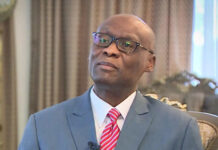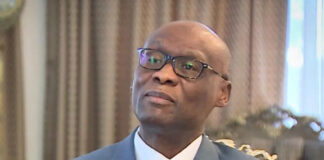Special needs pilgrims in the Kingdom performing Hajj have received continued support for years, and this year was no exception.
The Ministry of Hajj and Umrah, in collaboration with Harakiya Adults Motor Disability Association, helped 17 adults from the association to perform the recently concluded Hajj through a fully equipped campaign that took into account their health conditions, for an easy and comfortable hajj experience.
The Ministry of Hajj and Umrah is keen to enable the disabled to perform their pilgrimage, the fifth pillar of Islam. The deputy minister of Hajj and Umrah, Abdulfattah Mashat, gave the matter special care personally, conducting inspection visits to the disabled Hajj camp in Muzdalifah to reassure and listen to the suggestions of people there.
The 17 special needs Saudi pilgrims’ disabilities range from paraplegics to polio survivors, from different areas including Riyadh, Jouf, Dammam, Dawadmi, Madinah, Asir, Qassim, the Eastern Province, Hail, and Taif.
Majed Al-Soraya, director of the Campaign Beneficiaries Services Department, who suffers from a motor disability, told newsmen: “Selecting candidates was based on many conditions, including that the beneficiary had never performed Hajj before.
Read Also: Sudais appoints two women to top positions in affairs of two holy Mosques
“Participation was limited to persons with motor disabilities who could rely on themselves, and were immunized with (a coronavirus disease vaccine) second dose,” he added.
Al-Soraya also mentioned the ministry’s readiness to offer pilgrims with motor disabilities a comfortable stay and fully equipped transpiration. “Technical inspection and maintenance procedures were carried out as a preparation stage. We made sure to prepare travel medical supplies, first aid, Ihrams, and pilgrims’ needs. We also made preparations to ensure a well-equipped secure residence in Mina.”
One of the participants, Abdullah Alraishan, a paraplegic whose condition was caused by a car accident in 2011, said: “To be honest, I was not expecting a chance to perform Hajj this year. It was an unexpected feeling. I’m really speechless; everything was well organized. Indeed, all sectors have made an exceptional effort.
“Being a person with disabilities, I found very comprehensive access, care, and attention by the campaign. The transportation process between the holy sites was perfect. Thanks to our government, security sectors, and to everyone who worked on such an initiative for people with disabilities.”
Khalid Al-Hajjri, 38, has had a movement disability since birth. He said that he decided to participate in this year’s Hajj because it was an irreplaceable opportunity, in light of the small numbers, organization and precautions in place.
“The experience of Hajj this year was wonderful, full of spirituality and indescribable feelings,” he said. “The movement between the holy sites was carried out with ease (with) the well-equipped cars, the sufficient number of organizers and the integrated coordination with all sectors.”
Naji Al-Fahiqi, 43, who also suffers from a movement disability caused by poliomyelitis said that he was not expecting to get the opportunity to participate in this year’s Hajj. “I was lucky enough and blessed to be among (the) pilgrims this year,” he said.






















